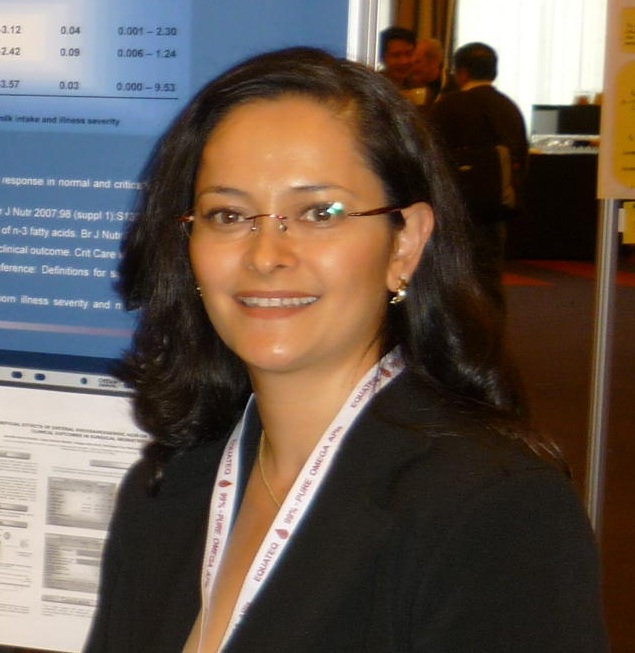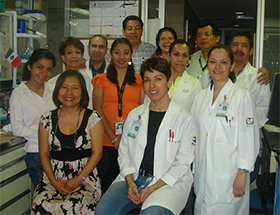
We tested the hypothesis of whether a pharmacologic, orogastric dose of docosahexaenoic acid (DHA) administered during the acute phase of sepsis protects the nutritional status of neonates. A randomized, placebo-controlled trial was conducted. Neonates who developed sepsis after a surgical procedure were randomly assigned to receive daily 100 mg of DHA or 100 mg of olive oil as placebo for 14 d. At selection, illness severity was evaluated and a blood sample was obtained to measure erythrocyte fatty acid composition. Energy intake and type of feeding were recorded daily. Body composition was also determined at selection and after 14 d of follow-up with the deuterium dilution technique. Body composition differences between d 14 and baseline were calculated and compared between groups. Confounders were analyzed in a multiple regression model. In all, 16 DHA and 11 placebo cases were followed up. Both groups showed an increase in length and head circumference, but length gain tended to be greater in neonates with DHA (P = 0.07). The DHA group presented increases in body mass (50 g, P = 0.03) and fat mass (70 g, P = 0.03), whereas infants in the placebo group did not show an increase in any body composition components. Gain in fat mass was positively related with the DHA of erythrocytes and whether or not infants received DHA. Orogastric DHA administered in the acute phase of infection likely protects the nutritional status of neonates with sepsis.









